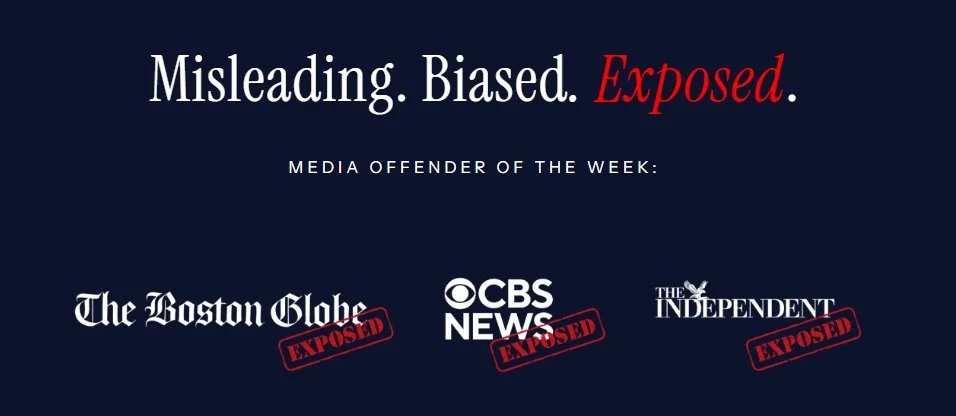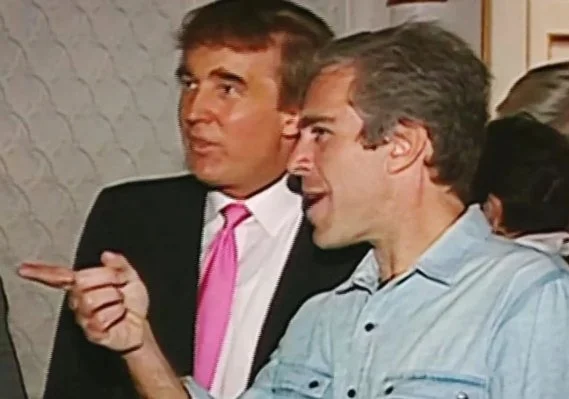Power, Parallels, and Projection: Understanding How Trump May Respond to the Epstein Files Through Behavioral Analysis
The release of new documents related to Jeffrey Epstein has triggered renewed public interest in examining not only Epstein’s actions but also the behavior of those who operated within his social and political orbit. Among these figures is Donald Trump, a man whose public persona and response patterns have long been subjects of intense scrutiny. While the newly released documents do not, on their own, establish criminal wrongdoing by Trump, they have inevitably raised questions about how he interprets the release, how he situates himself in the narrative, and how he may respond going forward. Understanding this requires more than a legal analysis; it demands a psychological and behavioral perspective.
Human behavior is influenced heavily by social environment. Studies of power networks consistently show that individuals who operate in elite, insulated circles where norms differ from the broader population, often display similar patterns of thinking and action. Epstein unquestionably behaved as if he were untouchable, protected by wealth, influence, and strategic connections. Trump, too, has cultivated an image of invulnerability, often framing himself as someone who survives attack after attack through sheer persistence and dominance. Their worlds overlapped, and while their actions and motivations cannot be equated, the behavioral similarities rooted in their powerful social environment offer insight into how Trump might process this moment and respond to it.
This essay will explore four interconnected areas: the psychology of untouchability within elite networks, the behavioral mimicry that occurs within such circles, the likely interpretation by Trump of the Epstein file releases, and finally, how Trump’s well-documented behavioral patterns may guide his actions going forward. The goal is not to imply equivalence between the two men or speculate about guilt, but to examine how patterns of human behavior provide a framework for prediction.
Disclaimer: This article is a work of behavioral and psychological commentary based on the author's analysis of publicly documented historical events and established behavioral patterns. It is an editorial piece intended for discussion and predictive modeling, and is not a factual news report, legal analysis, or psychological diagnosis. The content does not assert criminal wrongdoing or imply legal equivalence between the individuals discussed. The conclusions presented are the author's interpretations and predictions, and are not guaranteed as definitive future outcomes.
The Psychology of Untouchability in Elite Circles
Individuals who accrue substantial power often adopt mental frameworks that differ from those of the general population. Sociologists describe this as “elite insulation” a condition in which wealth, influence, and status create a buffer between the individual and consequences. Over time, this can cultivate a belief that rules are negotiable, threats are manageable, and personal actions are beyond scrutiny.
Jeffrey Epstein’s behavior exemplified this phenomenon. He operated for decades with a striking level of confidence, manipulating relationships with wealthy and politically connected individuals to cultivate the image of a man above accountability. His conduct reflected a deep sense of impunity, one reinforced by the leniency he received in earlier legal encounters.
Donald Trump, although different in personality and life trajectory, exhibits a parallel psychology. Throughout his career both in business and politics, Trump has demonstrated an unwavering belief that he will prevail regardless of obstacles. He routinely describes legal challenges as “nothing,” lawsuits as “nuisances,” and political investigations as “witch hunts.” Whether this confidence is strategic or deeply internalized is debatable; what is clear is that Trump sees himself as someone uniquely protected by public loyalty, legal maneuvering, and personal determination.
This sense of invincibility is not unusual among people who spend decades surrounded by deferential subordinates and beneficiaries of their power. These individuals are less likely to question their own behavior, more likely to assume they can outmaneuver others, and more likely to interpret pushback as an attack rather than accountability. Both Epstein and Trump operated within such contexts, and their sense of untouchability was shaped by similar environmental forces.
Proximity, Social Modeling, and Behavioral Mimicry
Human beings are inherently social creatures, and even the most dominant personalities are shaped by the norms of their environment. Within elite networks, where rules are often flexibly interpreted and reputational risk is negotiated rather than avoided, individuals tend to mirror one another. This phenomenon, known in psychology as social modeling means that people absorb and replicate patterns they observe in peers.
Epstein’s circle was populated by billionaires, politicians, intellectuals, and celebrities, many of whom operated under the tacit assumption that association alone conferred a level of protection. Behaviors such as aggressive denial, dismissal of critics, strategic charm, and the manipulation of narrative are common in such environments.
Trump, during his years as a New York social figure, moved within similar networks. His behavior reflects many traits common to elite social modeling: confidence in his own exceptionalism, willingness to bend narratives in his favor, and aggressive counterattacks against perceived threats. None of these behaviors indicate guilt in the Epstein case; rather, they demonstrate how powerful individuals shaped by similar environments may exhibit similar responses when under pressure.
Observing these parallels allows analysts to predict Trump’s reaction to the Epstein file release not by assuming shared actions but by understanding shared behavioral frameworks.
How Trump Is Likely to Interpret the Release of the Epstein Files
Trump’s interpretations of potentially damaging events are usually consistent, and this predictability allows us to forecast his likely thought process surrounding the newly released Epstein documents.
First, Trump almost universally views unflattering revelations through the lens of political attack. Throughout his public life, he has framed criticism, reporting, and legal scrutiny as orchestrated efforts by opponents to undermine him. He relies on a binary worldview: supporters act in good faith, critics act maliciously. Accordingly, the release of the Epstein documents, regardless of their content is likely to be seen as an attempt to damage him rather than as an independent act of transparency or accountability.
Second, Trump is extremely sensitive to narrative control. He has always prioritized shaping the public story surrounding his actions, portraying himself as decisive, strong, and wronged by adversaries. In his interpretation, the Epstein files pose not merely a reputational risk but a narrative risk: the possibility that he could lose control over the story. This threatens his public identity as someone who cannot be weakened by scandals.
Third, Trump is likely to interpret the release as an opportunity as much as a threat. His past behavior indicates a pattern of weaponizing adversity; transforming accusations into evidence that he is being targeted because he is effective or “over the target.” This reframing allows him to maintain personal power, reaffirm supporter loyalty, and redirect criticism.
Finally, Trump’s interpretation will be shaped by his profound concern with loyalty. He sees challenges not only as political threats but as betrayals. If individuals involved in releasing the documents are or were connected to him politically, Trump’s interpretation would include a personal dimension, intensifying his response.
Predicting Trump’s Behavioral Response Going Forward
Given Trump’s consistent behavior patterns across decades, his likely course of action in response to the Epstein document release can be predicted with a high degree of confidence; not in terms of legal actions but public behavior.
1. Denial Coupled With Absolute Certainty
Trump rarely offers nuanced responses. His denials are categorical, framed in definitive language such as “totally false,” “complete fabrication,” or “made up by political enemies.” This allows him to maintain an image of strength and leaves little room for ambiguity, which he views as weakness.
2. Aggressive Counterattack
Trump’s most common strategic response to criticism is to go on offense. He may attack the credibility, motives, or past behavior of those releasing the documents. This redirects attention away from the content and back toward a political conflict, which he is adept at framing to his advantage.
3. Narrative Reframing
Trump often claims that releases of documents whether about Russia, Ukraine, January 6th, or his business dealings, actually “prove” his innocence. He selectively cites details while dismissing the rest as irrelevant. A similar approach is likely here: he may highlight aspects of the release that distance him from Epstein while dismissing incriminating or ambiguous details as politically motivated.
4. Rallying Political Support
Trump is skilled at converting moments of adversity into loyalty tests. He will likely encourage supporters to interpret the release as an attack not only on him but on Republicans. This transforms personal scrutiny into collective identity defense, strengthening group cohesion.
5. Pre-Emptive Escalation
If more documents are expected, Trump may move to preempt their release by attacking the process, questioning the legitimacy of those involved, or hinting at future retaliatory disclosures. By escalating early, he positions himself as proactive rather than reactive.
Simply Put
While no document release can predict legal outcomes, understanding behavioral patterns can help anticipate how individuals will react publicly and politically. Epstein and Trump, though fundamentally different individuals, occupied adjacent environments where power, influence, and insulation from consequence shaped their worldviews. Epstein’s sense of invulnerability was extreme; Trump’s is political, performative, and deeply rooted in his identity. Yet both reflect the psychology of elites who believe they can navigate or neutralize threats through force of personality, control of narrative, and aggressive dismissal of critics.
Trump’s likely response to the Epstein file release will follow a familiar pattern: deny, attack, reframe, mobilize, and escalate. He will interpret the documents not through the lens of accountability but through the lens of political conflict and narrative warfare. In doing so, he will reinforce a behavioral pattern consistent throughout his public life; a pattern shaped not only by personal disposition but by the powerful social circles that once included Epstein.
Reference List
Bandura, A. (1977). Social learning theory. Prentice Hall.
Brown, J. K. (2021). Perversion of justice: The Jeffrey Epstein story. Harper.
Cialdini, R. B. (2006). Influence: The psychology of persuasion (Rev. ed.). Harper Business.
Keltner, D. (2016). The power paradox: How we gain and lose influence. Penguin Press.
Mason, L. (2018). Uncivil agreement: How politics became our identity. University of Chicago Press.









